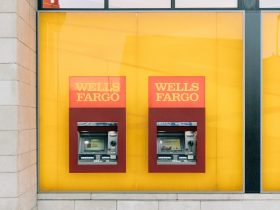Hello there, fellow ethical spenders! I’m Emily Greenfield, and for the past four years, I’ve been on a quest to unravel the fascinating world of ethical spending. Today, we’re delving into a topic that’s not only close to my heart but also vital for a more inclusive and equitable society: financial inclusion. So, grab a cup of your favorite brew and let’s dive into the ethical dimensions of financial inclusion.
Financial Inclusion: Beyond the Buzzwords
Before we get into the nitty-gritty, let’s clarify what we mean by financial inclusion. In its simplest form, financial inclusion is about ensuring that everyone has access to essential financial services, like banking, credit, insurance, and savings. It’s a powerful tool for reducing poverty, promoting economic growth, and fostering social inclusion.
But hold on a second! Isn’t this just another buzzword? Well, yes and no. Financial inclusion has certainly become a buzzword in recent years, with governments, NGOs, and businesses all jumping on the bandwagon. However, its essence is far from being just a marketing gimmick. It’s about recognizing that access to financial services is a fundamental human right.

The Ethical Imperative
Let’s start by addressing the ethical imperative of financial inclusion. Picture this: millions of people worldwide are excluded from the formal financial system. They don’t have a bank account, access to credit, or insurance to protect them in times of need. This exclusion perpetuates a cycle of poverty and inequality that affects individuals, families, and entire communities.
Now, isn’t it ethically troubling that in a world of abundance, so many are left behind in the financial wilderness? Financial inclusion, my friends, seeks to right this wrong. It’s about creating a level playing field where everyone has a fair shot at economic prosperity and financial security.
The Unbanked and Underbanked
To truly grasp the ethical dimensions of financial inclusion, we need to understand who’s affected the most. The unbanked and underbanked populations are at the forefront of this issue.
The unbanked are those who lack access to basic financial services altogether. They stash their cash under mattresses, relying on informal and often risky methods to save and transact. This can expose them to theft, fraud, and financial instability.
On the other hand, the underbanked have limited access to essential financial services. They may have a basic bank account, but they struggle to access credit or insurance, hindering their financial growth and stability.
The Role of Technology
Now, here’s where it gets interesting. Technology, specifically mobile banking and digital financial services, has been a game-changer in the world of financial inclusion. Imagine having a bank branch right at your fingertips, accessible via a smartphone. It’s like having a personal financial advisor in your pocket!
Digital financial services have made it possible for the unbanked and underbanked to access banking, savings, payments, and even microloans. Take M-Pesa in Kenya, for instance. This mobile money platform has revolutionized financial inclusion by allowing users to send and receive money with ease, even in remote areas.
But, and there’s always a ‘but,’ the ethical dimensions come into play here as well. The rapid digitization of financial services has raised concerns about data privacy, security, and the potential for exploitation. We must ensure that as we make strides in financial inclusion, we do so ethically and responsibly.
The Ethics of Microfinance
Microfinance, a concept championed by Nobel laureate Muhammad Yunus, is another critical aspect of financial inclusion. It involves providing small loans and financial services to low-income individuals, often without collateral.
On the surface, microfinance seems like a win-win situation. It empowers entrepreneurs to start businesses, escape poverty, and contribute to economic development. However, the ethical dimensions become apparent when we examine the practices of some microfinance institutions.

High-interest rates, aggressive collection practices, and lack of transparency have marred the reputation of microfinance in some regions. These practices can push vulnerable borrowers into a cycle of debt, undermining the very goal of financial inclusion.
The lesson here? While microfinance has the potential to transform lives, it must be practiced with ethics and fairness at its core.
Financial Literacy: The Missing Link
Now, let’s talk about another essential piece of the financial inclusion puzzle: financial literacy. It’s not enough to provide access to financial services; people need the knowledge and skills to use them effectively.
Imagine handing someone a musical instrument without teaching them how to play. They may have the tools, but they won’t create beautiful music without guidance. Similarly, financial inclusion is incomplete without a strong focus on financial education.
Ethically, we have a responsibility to ensure that people have the know-how to manage their finances, make informed decisions, and avoid falling into debt traps. Financial literacy programs are a vital step in this direction.
Gender and Financial Inclusion
Ah, the gender gap! It seems to seep into every corner of society, and financial inclusion is no exception. Women, particularly in developing countries, face unique challenges when it comes to accessing financial services.
Cultural norms, limited mobility, and discriminatory practices often restrict women’s ability to open bank accounts, access credit, or control their finances independently. This is not just an ethical concern; it’s a human rights issue.
Promoting gender equality within the realm of financial inclusion is not only the ethical thing to do but also economically savvy. When women have equal access to financial services, it can boost family income, improve child nutrition, and drive economic growth.
The Way Forward
As we navigate the complex terrain of financial inclusion, it’s crucial to remember that ethics should be our guiding star. We have the power to transform lives, uplift communities, and create a fairer world through ethical financial inclusion.
We must demand transparency from financial institutions, hold them accountable for their practices, and support initiatives that prioritize the well-being of the unbanked and underbanked. We must advocate for responsible lending and ensure that financial literacy programs reach those who need them the most.
In conclusion, the ethical dimensions of financial inclusion are not just a theoretical exercise. They are a call to action, an invitation to make a positive impact in the lives of millions. By approaching financial inclusion with ethics as our compass, we can build a more inclusive, equitable, and prosperous world for all.
So, fellow ethical spenders, let’s continue our journey to make the world a better place, one financial decision at a time. Together, we can create a future where financial inclusion is not just a buzzword but a reality for all.

































